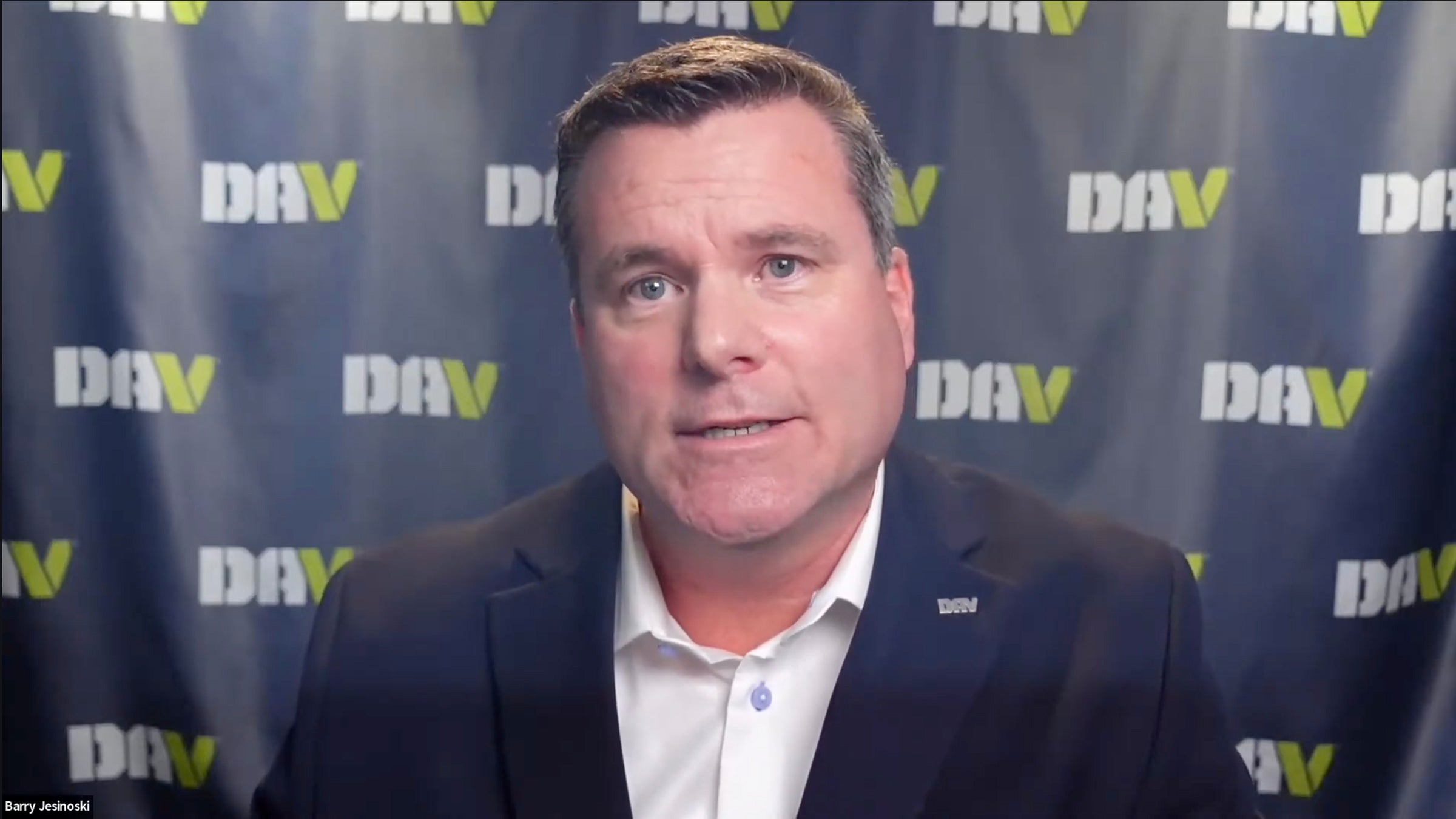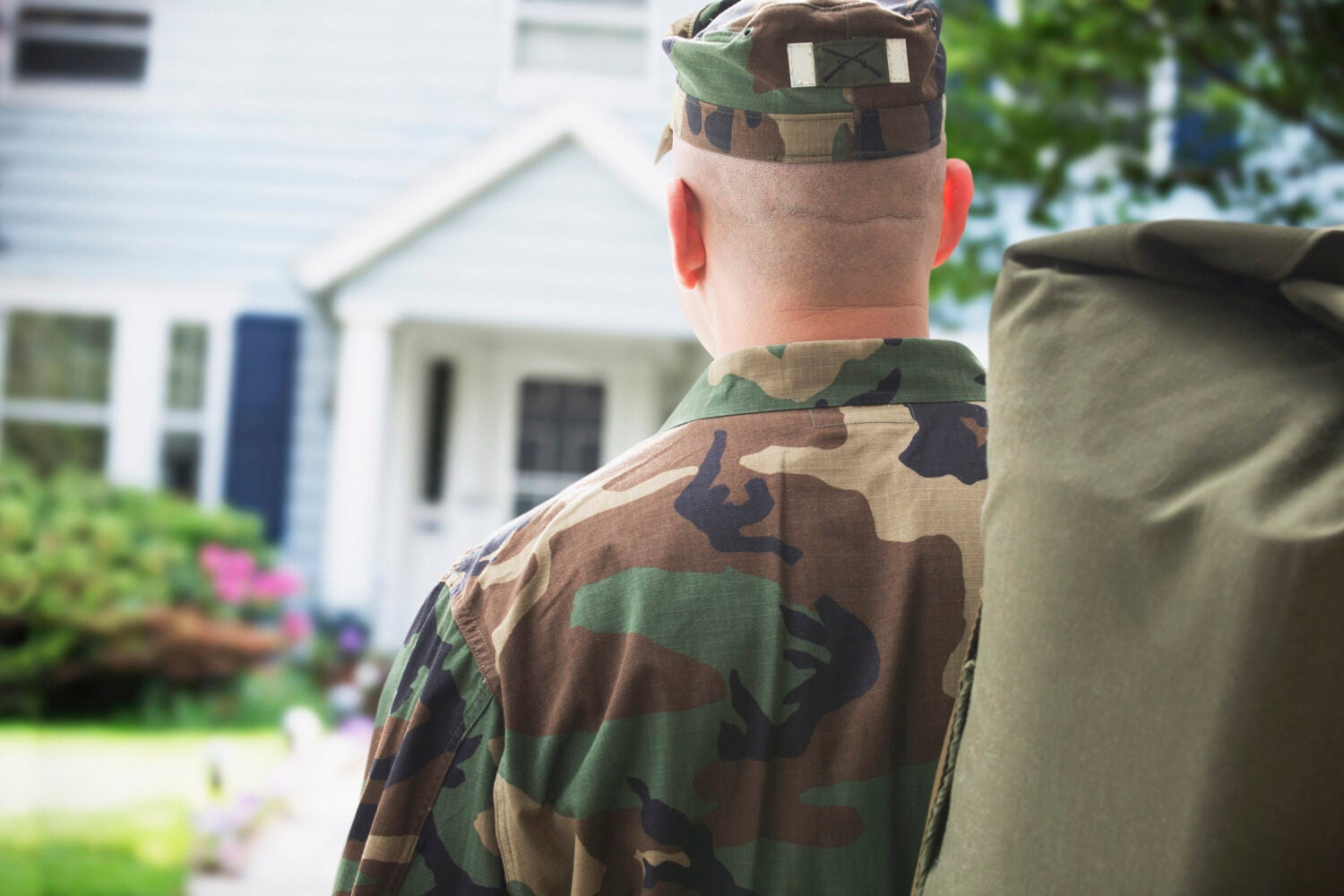One mission of Harvard Law School’s Veterans Legal Clinic is to advocate for military veterans who were wrongfully given a less-than-honorable discharge. According to Dana Montalto, lecturer on law and associate director of the clinic, it’s one of the clinic’s most pivotal services.
Montalto was a featured speaker during the 2025 Disabled American Veterans (DAV) Distinguished Speaker Series webinar called “Correcting the Voices: Veterans’ Voices on Discharge Upgrades,” along with DAV National Adjutant Barry Jesinoski, and four veterans who’ve had direct experience receiving less-than-honorable discharges and then navigating the legal process to upgrade them to honorable. The Oct. 29 event marked the 11th year that the national DAV organization joined Harvard Law School to present its speakers series forum.
“When a service branch gets it wrong, you know how to make it right. When a veteran needs help, you help,” Jesinoski, a Persian Gulf veteran, told the clinic representatives in his opening remarks.
The clinic “provides free legal help to low-income veterans and their families, with a priority of filling in the gaps for areas where people who have served in the military may not otherwise be able to find or afford help,” Montalto said in an interview. “We knew that [wrongful discharges] had to be an important area because there is such a dearth of legal resources for veterans seeking a discharge upgrade. The power of getting an honorable discharge is so strong that it can open the door to benefits that most Americans assume that veterans already have access to, like disability benefits and healthcare. But it is also such an important part of honoring veterans’ service, providing that feeling of dignity.”

Jesinoski cited the case of a post-9/11 veteran who was shaken by a friend’s suicide before he was deployed to Afghanistan and received an OTH, or other than honorable, discharge after one use of hashish. The clinic gathered evidence about the veteran’s meritorious service, deployment-related mental health conditions, and character references, and represented the veteran through numerous hearings that resulted in an upgrade to fully honorable.
“All of that work, effort and care for one veteran — this is your team’s approach to every single case,” Jesinoski remarked. An OTH, he said, “is the military’s equivalent of a scarlet letter. So, when the evidence demands a closer look, that’s what you do … You give them the respect and the dignity they’ve earned as humans.”
“When the evidence demands a closer look, that’s what you do … You give them the respect and the dignity they’ve earned as humans.”
DAV National Adjutant Barry Jesinoski
Panelist Steve Connor, now the director of the Central Hampshire Veterans Services District, recounted his experience in the Navy during the 1970s and being sexually assaulted, leading him to go AWOL because he couldn’t face the aftermath. After many years of not even acknowledging his veteran status, he learned to advocate on his own behalf. That meant confronting his own PTSD, which had been labeled as a “personality disorder” during service, and seeking corrections to his military record.
“I finally had to admit to myself that [the assault] was the reason I could never go back; I wasn’t going to go back to where that happened. I then went [to the military] and said ‘I’ve now been diagnosed. Can we get rid of this personality disorder?’ It was anxiety, it was fear, it was anger, all these things. Then they allowed that to go through.”
Through his role in the veterans service organization, Connor has since guided others through the same process. “You have to look at it legally and make the case for your upgrade, but you also have to show that you’re human. When you’re 17, 18 years old, you don’t always make the best decisions. And I think my not going back and facing it — for many years I was embarrassed by it. But now I look back and say, ‘How could I? There was nobody I could go and talk to.’”
Three other panelists also spoke, all veterans who had been upgraded to honorable discharges. They agreed there is a high level of bureaucracy to navigate to get an upgrade, which can be daunting without an advocate in your corner.
“This has never been about money for me. What I wanted was my good name back,” said Kevin Monroe, an Air Force veteran who was first discharged honorably, reenlisted, and then was discharged for alleged bad conduct. Restoring his status involved years of paperwork, meetings, and appeals. “It’s a nightmare navigating this system. They don’t want you to be successful. They want you to give up, but with me, you got the wrong guy.”
“This has never been about money for me. What I wanted was my good name back.”
Air Force veteran Kevin Monroe
Navy veteran Anabel Reyes was discharged because of her sexual orientation, under the now-repealed “don’t ask, don’t tell” policy. After being forced to “out” herself, she was sent home almost immediately, not receiving the transitional assistance usually given to vets.
This made life tougher afterward, and she suggested that the military take better care of those given less-than-honorable discharges. “From the experience of crash-landing at home, and not knowing where to go or who to talk to,” she said, “it would have been nice to have this information before I left.”
Paul Bradley, who saw two post-9/11 combat deployments in the Marine Corps, was able to go back to school after getting his honorable discharge. The system, he said, “is getting better than it once was, but it’s far from perfect. The system is designed to wear people down, and eventually they’ll just give up. It’s a sad state where people who are fighting and serving, dying for our country, have to go through these circumstances. Anyone that takes that oath and serves in that uniform, deserves that respect from the system that they’re trying to serve ….”
Want to stay up to date with Harvard Law Today? Sign up for our weekly newsletter.
